Seminar Blogs

“Distributed educational practices: What does it mean to learn in a networked manner?” – Aishwarya Kumar
On a walk back home from the grocery store where I had just picked up supplies essential to my current lifestyle, I received three notifications. The first was a shared link on Whatsapp by a classmate from Amsterdam about a zoom call that was being conducted by Institution for the Arts and Humanites –Judith Butler in…
Read more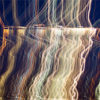
“Speculative Writing and the Future as an Actual Event” – Anthony Nestel
In Felicitas Macgilchrist, Heidrun Allert and Anne Bruch social science fiction paper titled Students and society in the 2020s. Three future ‘histories’ of education and technology (2019) the writers propose three divergent possible futures for technology and education. While their three distinct future scenarios are extremely thought-provoking and insightful I will reflect on the speculative…
Read more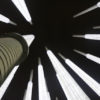
“The University to Come in Times of COVID-19” – Dennis Jansen
“But in fact, critical education only attempts to perfect professional education.” – Fred Moten and Stefano Harney (2004, 106) What is the future for the students of today? The question is flawed from the beginning, of course, because there is not one future for everyone, and who are these ‘students of today’ exactly? Felicitas Macgilchrist,…
Read more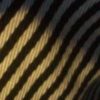
“Disciplining the Future” – Chris Julien
Our relationships to those times called the future are fraught with presents. As Felicitas Macgilchrist, Heidrun Allert & Anne Bruch’s paper and presentation on scenario-building for education point out, our futures are entangled with “indeterminate sociotechnical configurations” (Macgilchrist et al. 2020, 76). Yet, their interesting and nuanced exploration of scenario building helps to point out…
Read more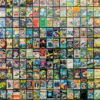
“The Incomplete Citizen: Performatives of citizenship through a Post humanist praxis” – Aishwarya Kumar
In January 2020, during the student protests in India, political participation saw a new wave that had long been present and yet hadn’t been harnessed and recognized as a form of citizenship participation. This performance involved the decentralized production of knowledge in the light of weakening institutional journalism and governance. Dissatisfied with the news that…
Read more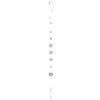
“Pre-enacting necessarily” – T.P.
Dr. Janneke Adema’s affirmative proposal of ‘post-publishing’ works to carry along the desired and leaves behind the undesired aspects associated with the currently dominant modes of publishing in the humanities. Hers is a speculative project, in the imaginative sense of the word. The early Ursula K Le Guin novel, “Very Far Away from Anywhere Else”…
Read more
“A new death of the author?” – Christl de Kloe
In the sixth Transmission in Motion seminar (and the first online version), entitled “Post-Publishing and Performative Publications”, Dr. Janneke Adema discussed how we can think about “new” and/or other forms of doing research, of publishing, and of distribution. She introduces the concept of post-publishing and discusses this concept through various projects of new and different…
Read more
“Theory without Technology” – Chris Julien
post–publishing Academic publishing, from a posthumanities perspective, opens up a large field of possible entanglements, as the practice-based research of Janneke Adema thoughtfully demonstrates. Such a posthuman take on publishing opens up a large field of questions and practices, which Adema raises, and perhaps even more pertinently, experiments with in her work. Stressing the processual…
Read more
“The Rhythms of Language” – Anthony Nestel
In her inspiring lecture, Janneke Adema proposed to rethink, affirmatively, the humanities, the human and the digital in a creative and pragmatic direction they call “posthumanities”. With the rise of posthumanist and antihumanist theorists, such as new materialists, posthumanists, object-oriented philosophers, and media archaeologists, the question of a posthuman pragmatics is, more than ever, fundamental….
Read more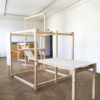
“The display as a publishing tool” – Freja Kir
This piece of small writing forms the fourth part in a series covering different methods on current perspectives for measuring transmissions in motions. The writings specifically draw on references and inspiration shared from the seminar of the same title hosted by the University of Utrecht during the first half of 2020. Throughout the writings, the…
Read more
